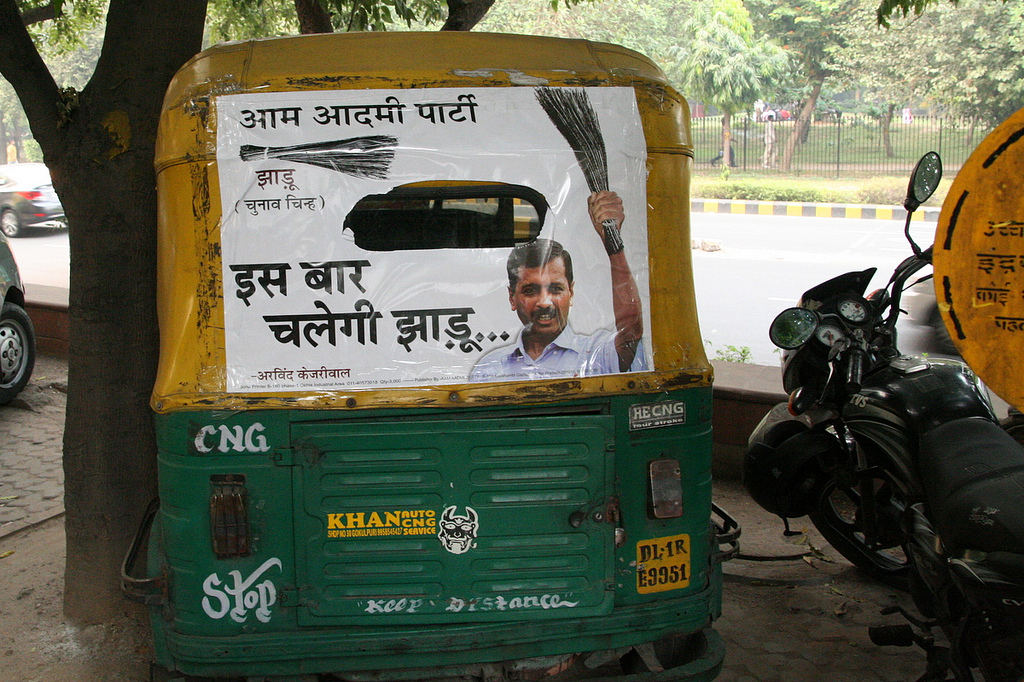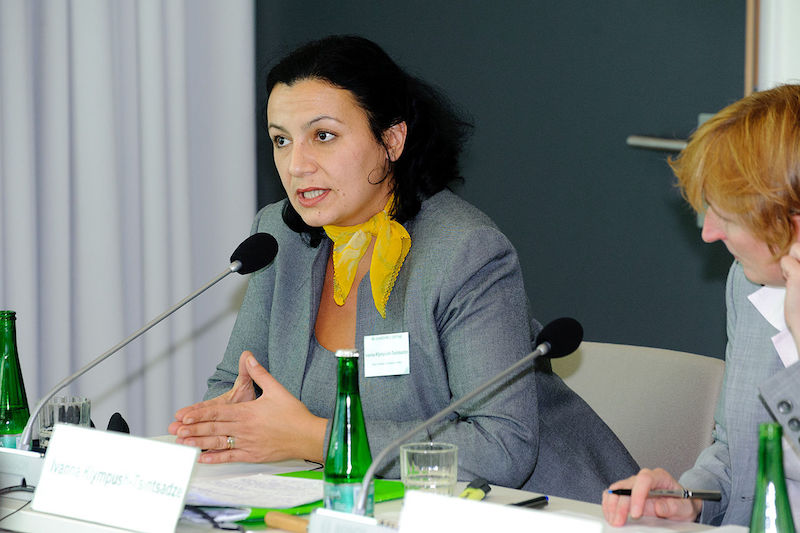The recent election in the Indian state of Punjab garnered international attention and interest as it signified a potential shift towards a more accountable state. An unprecedented 75% of Punjab’s voter base turned out to vote in the election. The global Punjabi diaspora, comprised of over 10 million individuals and mainly concentrated in the United Kingdom, Canada and the United States, watched closely as the fate of their extended families and their home state was decided. This article is the first of a two-part series on the recent Punjab election, and focuses on the political and emotional transnational involvement of Non-Resident Indians (NRIs). Part 2 will examine economic transnationalism in Punjab, as well as among the broader Indian diaspora.
Three main parties comprised the election: Congress, Shiromani Akali-Dal, and the Aam Aadmi Party (AAP), or Common Man’s Party. It is estimated that anywhere between 5,000 to 15,000 Non-Resident Indians flew back to Punjab to support the election, and over 10,000 overseas volunteers supported the fate of the election from abroad – through phone canvassing, collecting donations, and informing the extensive Punjabi diaspora about the cause. A large portion of the diaspora voiced support for the AAP.
Seen as a party for the growing middle class in Punjab, the AAP vowed to support education, healthcare and senior citizens; crack down on the drug mafia; and reduce the growing debt of Punjabi farmers. They also vowed to promote transparency and corruption-free politics, and in the process have shaken up Punjab’s political culture, which has oscillated between Congress and Shiromani Akali-Dal since India gained independence. This political culture is especially unique to Punjab, as nationally, The Shiromani Akali-Dal and Bharatiya Janata Party (BJP) have the strongest presence.
Nearly all the financial support the AAP has received has been from charitable donations from the global Punjabi diaspora. Non-financial support was also extensive: encompassing telephone marathons, town meetings, social media campaigns and more, throughout Canada, the US and UK. While the AAP came up short in the election results, the unfolding of the election, especially the extensive involvement of NRIs, prompts a much needed discussion of the way transnational movements are reshaping and redefining political boundaries.
The Punjabi diaspora was integral to the momentum the AAP gathered during the election process. In Canada alone, community centres were packed with thousands of Punjabi-Canadians who wished to learn more and see what they could do to take part. A massive social media campaign known as “Chalo Punjab” served as a call-to-action for NRIs, who rallied support in influencing voters towards the AAP. The campaign was shared over two million times on Facebook, and its success even prompted the creation of an NRI App to facilitate support from the Punjabi community towards the election.
External attempts at influencing elections are nothing new. As recently as the 2016 US election, several actions such as the hacking and publishing of emails from the Democratic National Committee, along with comments by Vladimir Putin, have intelligence and national security experts claiming widespread Russian interference in the US election. Several authoritative news sources argue the outcome was skewed by Russia’s involvement.
What makes the NRI involvement in the Punjab election unique is the emotional stake NRIs have with the outcome of the election. Several NRIs have voiced their disdain for both Congress and the Akali-Dal party, based on their experiences when they lived in Punjab. They recount their first hand experiences of corruption and bribery, which they view as entrenched within the governing style of both parties. Several NRIs reflected on their years or decades of living in the West, by comparing the current system of governance to that in Punjab, and imagining a shift towards a more transparent and accountable structure of governance. In fact, several NRIs supporting AAP have held political positions in the country to which they migrated, and imagine a similar structure for Punjab.
Furthermore, many NRIs still have extensive ties to Punjab: from family and friends, to property and business. In this sense, an issue such as the growing drug and substance abuse crisis is a problem to which they are closely linked, as it directly impacts their extended families and friends. Furthermore, many Punjabi migrants are Sikh, and given that Punjab is the core of the Sikh religion, their faith continues to connect them to the land.
The NRI involvement stirred state-wide curiosity in Punjab and prompts a reimagining of political boundaries. Transnational ties lead to the movement of capital, individuals, and even ideas. The governance structure and democratic ideals with which NRIs have become familiar are being reimagined in Punjab as a potentially new political reality. In fact, several NRIs advocating for the AAP had political positions in their home states.
External influence on political elections is often criticized as undermining the democratic process. While the AAP didn’t win the 60 seats needed for a majority, the extensive and heated campaign proceedings in Punjab have shaken the two-party system with which the state was familiar. As NRIs have a personal and financial stake in the election, it becomes complicated to criticize their involvement, as many have altruistic motives. Furthermore, the economic contribution NRIs have made, and continue to make in Punjab, are quite sizeable. Of all 29 states in India, Punjab receives the fourth-largest amount of economic remittances from NRIs, who view that they have a key stake in determining the political future of their native state.
Photo: Aam Aadmi Party Election Poster (November 8, 2013), by Ramesh Lalwani via Flickr. Licensed under CC BY-NC 2.0.
Disclaimer: Any views or opinions expressed in articles are solely those of the authors and do not necessarily represent the views of the NATO Association of Canada.




